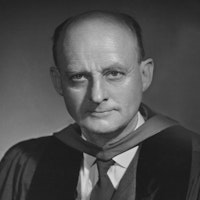The love [Agape] which the gospel demands is justified and validated only transcendentally. We are asked to love our enemies that we may be children of our Father in Heaven…
Reinhold Niebuhr

Agape Love
Topic: Love, Compassion, & Kindness
There is, nevertheless, a distinction between them [Eros and Agape]. The love [Agape] which the gospel demands is justified and validated only transcendentally. We are asked to love our enemies that we may be children of our Father in Heaven. An attitude of spirit is enjoined without any prudential or selfish consideration. We are not told to love our enemies because in that case they will love us in return. The love that is asked of us does not move on the plane of emotion or desire.
Reinhold Niebuhr, born Karl Paul Reinhold Niebuhr on June 21, 1892, in Wright City, Missouri, was a prominent American theologian, ethicist, and public intellectual. After graduating from Elmhurst College in 1910, he earned his seminary degree from Eden Theological Seminary in 1913 and a Master of Divinity from Yale Divinity School in 1914. Ordained in the German Evangelical Synod of North America, Niebuhr served as a pastor in Detroit before joining Union Theological Seminary in New York in 1928, where he taught Christian ethics for over three decades. His work bridged theology and social ethics, addressing pressing issues of his time.
Niebuhr’s major works, including Moral Man and Immoral Society (1932) and The Nature and Destiny of Man (1941-1943), explored human nature’s complexities, balancing creativity with destructiveness and altruism with self-interest. His reflections on original sin and humanity’s limitations shaped his critiques of political and moral systems. He argued that justice was achievable through democracy, famously stating, “Man’s capacity for justice makes democracy possible; but man’s inclination to injustice makes democracy necessary.” His ideas deeply influenced responses to historical events like the Great Depression, World War II, and the Cold War.
Niebuhr’s influence extended beyond academia. Awarded the Presidential Medal of Freedom in 1964, he remains well-known for penning The Serenity Prayer, embraced by recovery communities and others. His reflections on the intersection of faith, politics, and human nature left a lasting impact. Niebuhr passed away on June 1, 1971, but his ideas continue to shape ethical and theological discussions today.
Love Your Enemies
Niebuhr, Reinhold. Love and Justice: Selections from the Shorter Writings of Reinhold Niebuhr. Westminster John Knox Press, 1957, p. 220 [Reinhold Niebuhr (Love Your Enemies, Christianity and Society, Autumn 1942)].

Reinhold Niebuhr
Resources
Copyright © 2017 – 2025 LuminaryQuotes.com About Us

Reinhold Niebuhr, Love Your Enemies
There is, nevertheless, a distinction between them [Eros and Agape]. The love [Agape] which the gospel demands is justified and validated only transcendentally. We are asked to love our enemies that we may be children of our Father in Heaven. An attitude of spirit is enjoined without any prudential or selfish consideration. We are not told to love our enemies because in that case they will love us in return. The love that is asked of us does not move on the plane of emotion or desire.
Such a love is not easily achieved. In a sense no one ever perfectly achieves it. But it is, at least, no psychological absurdity. It does not demand that we should be emotionally attached [Eros] to someone with whom we are in conflict. It does demand that we should desire the good of our enemy. If achieved, it purges us of hatred; for hatred always has an egoistic root….
The love that the New Testament defines as AGAPE is spiritually difficult; but it is psychologically possible…